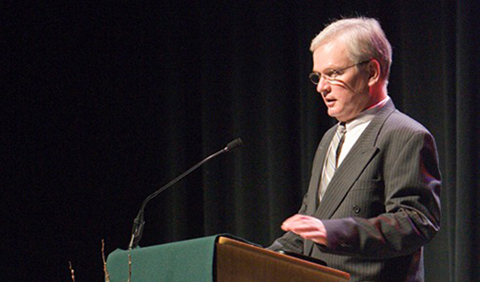The History website interviewed Dr. Steven Miner, professor History at Ohio University, for a story headlined “How World War I Fueled the Russian Revolution.”
“Russia was more unstable, and had more serious internal dilemmas than many other great powers, and so the degree to which the shock of war resulted in chaos was correspondingly more intense,” explains Steven Miner, a history professor at Ohio University who specializes in Russia, the Soviet Union and Eastern Europe. “Collapse minus war was possible, but in my view not certain. Involvement in the cataclysm of war made it nearly inevitable.”
Prior to the war, Russia was at a crucial crossroads. “Some argue that Russia was slowly evolving more modern political and social institutions, that it had a vibrant culture, a highly educated elite, that it had survived the upheaval of the 1905 revolution, and that it had the fastest-growing economy in the world before 1914,” Miner says. But as he notes, the Czarist regime faced plenty of threats to stability, from dire urban working conditions to labor strife that the Czar’s soldiers tried to put down by massacring gold miners in Siberia in 1912. To make matters worse, Nicholas II was starting to roll back the limited democratic reforms that he had agreed to in 1905….

















Comments